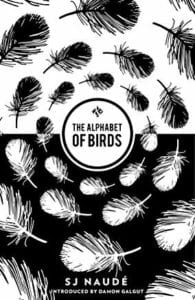
Later on he will see it differently, but it starts out as a kind of war. Or, at least, a series of escalating skirmishes.
He is caring for his mother. Cancer is growing in her intestines. She is going to die. The only unknowns are the moment and the precise route. The markers are set out for him, the self-poisoning body, the distending organs, pain, starvation and farewells.
The war, when it begins, is about food. It is a soundless war, a collection of mute battles. She hardly speaks any more. It deprives him too, of speech and breath, the disease.
He registers its progression in fragments.
The day dawns when she stops eating. The oncologist had explained this would happen. The last phase. It is important for the patient’s psychological state, he had elucidated, not to intervene. Let “the thing” take its course, do not try to coerce.
But when her refusal comes, he does not accept it. He too refuses. He is constantly in front of the stove. He has rarely before had time to cook. He is clumsy, inept. Even so: here he stands, steaming chicken, then shredding the flesh into long strips along the grain. He also cooks pale, watery vegetables. He juices pineapples, adding the pressed juice of limes. He makes toast and thin chicken soup. It is not helping. Nothing helps. He carries the untouched plates back to the kitchen.
He leaves his mother on her own for a while. She is calm, she is sleeping. For the first time in a week he goes outside, sits down in the autumn sun. He has forgotten that autumn in the Highveld is so beautiful, even though here it is bounded by a suburban garden surrounded by crime-ridden streets. For many years he has restricted his visits to summer so as to escape the northern winter.
Out of the blue he gets a phone call, on his British cellphone, from his Japanese friend Hisashi. How long is it since they’ve spoken? At least a year.
“This is unexpected.”
“I’m here.”
“What do you mean, Hisashi?”
“I’ve come to visit.”
“Here in South Africa?”
“Here in South Africa.”
“And you’re here already?”
“I’m here. In Johannesburg.”
Just before his departure from London, he sent all his friends an email, notifying them that he was on his way here. It contained all of his contact details. He was in a hurry to get to his mother’s bedside, couldn’t take proper leave of anybody. Hisashi had moved back to Tokyo from London the year before, but was still on his list. Typical of Hisashi, to arrive at such an inopportune moment, without warning.
The air is moving. The leaves of the pin oak are falling ceaselessly, their stems impaled in the lawn. The tips of the leaves tremble in the breeze like nerve endings.
In the course of an afternoon, his mother’s complexion changes from grey and transparent to yellow. The vomiting commences. It doesn’t stop. She has not eaten for days; there is only bile. It is as if an external force is controlling her, making her shudder to her fingertips. Even her eyes are yellow: the eyes of a devil.
Food, when he tries to eat, congeals on his plate. He sits on his own at the kitchen table. Ultimately he has to spit out the gray masticated mush onto the porcelain.
The freezer is overflowing. While she had the strength, she spent her days cooking. Baked puddings and loin of lamb, trifle and stuffed shoulder of venison, oven-roasted chicken with a lemon where the bloody intestines used to be. But these are not for her; they’re a legacy. She has now forsworn the body’s banalities, the lower functions. He is standing in front of the freezer, chilly fog billowing onto his feet. There are plastic bags, aluminum dishes and plates serried in rows, the contents unidentifiable, everything furred with frost. Nausea wells up in him. A cupboard full of cadavers. Fossils of the future. He works up a fury against his mother. The ice age has dawned.
From The Alphabet of Birds by S.J. Naudé, And Other Stories 2015, andotherstories.org. Reprinted with permission. All rights reserved.
